It comes under the Stone Age of the history when primeval people used stones or stone made implement for different tasks.
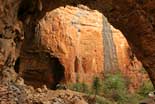
Divided into
- Paleolithic ( this period of Indian History lasted till 8000 B.C)
- Mesolithic (lasted from 8000 B.C - 4000 B.C )
- Neolithic (period lasted from 4000 B.C to 2500 B.C.) Read More

Considered to be the first ever urban civilization, the beginning of Indus valley civilization or Harappan Culture coincided with the Bronze Age around 3300 B.C. Read More

The four sacred Vedas are Rig Veda, Sama Veda, Yajur Veda and Atharva Veda were composed during this period. Ramayana and Mahabharata were written during this age. Read More
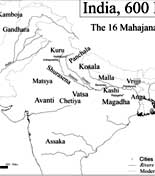
Termed as later Vedic Age; sixteen Republics were encapsulated in four major towns namely Vatsa, Avanti, Kosala and Magadha around 400 B.C. Read More
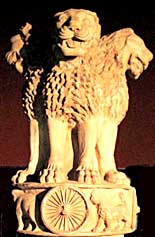
Mauryan Empire established by Chandragupta Maurya stretched its reign along Himalyas throughout North and towards East up to what is presently known as Assam. Read More
Jainism and Buddhism:
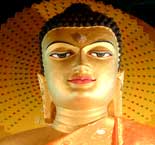

Mahavira establishes Jainism in 500 BC and Buddhism was preached by Lord Buddha around 520 BC

It is also known as the Golden Age (280-550 A.D): During this era that Aryabhatta discovered the concept of Zero.The major empires ruling during this time were Satavahana, Kushan and Gupta Empire. Read More
- Slave dynasty (1206 A.D. to 1290 A.D.)
- Khilji dynasty (1290 A.D. to 1320 A.D.)
- Tughlaq dynasty (1321 A.D. to 1413 A.D.)
- Sayyid dynasty- (1414 A.D. to 1450 A.D)
- Lodhi dynasty (1451 A.D. to 1526 A.D.)

- Babar (1526-1530)
- Humayun (1530-1540 and 1555-1556)
- Akbar (1556-1605)
- Jehangir (1605-1627)
- Shah Jahan: (1628-1658)
- Aurengzeb (1658-1707) Read more about the Mughal Empire
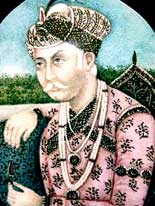
- Britain gets colonial power in India (1751) ( Read More )
- First War of Independence (1857) (Read More)
- British Crown takes over Indian Government (1858) (Read More)
- Capital shifted to Delhi from Calcutta (1912)
- Salt Satyagraha launched (1930)
- Quit India Movement (1942)
- Independence (1947)





